In order to navigate news flows well and have an objective picture of events, you need to carefully analyze the content and filter out untruths. This rule became undeniable during the war when a lot of hostile information masquerading as Ukrainian appeared in the media space. How to filter sources of information during the war? Zaporizhzhia journalists were helped to find answers to this question during the training held at the Zaporizhzhia Journalists’ Solidarity Center (JSC) of the National Union of Journalists of Ukraine (NUJU) by Olena Usmanova, an associate professor of the Department of Journalism of the Zaporizhzhia National University. She drew the attention of the training participants to the need to recognize manipulations in advance and not to believe them. Content must be created and distributed very responsibly. After all, everything related to war is extremely socially sensitive and vulnerable.
Social networks have long been one of the most common sources of information. However, they often contain not only true information but also fakes, distortions, and emotionally colored messages. Therefore, before using information from social networks both for personal purposes or for distribution, one should utilize the so-called rule of three sources – check the facts that are stated in it from official sources. This can be done on the websites of state authorities: the Ministry of Defense, the Security Service of Ukraine, the General Staff, or command of the Armed Forces of Ukraine (AFU), etc. And only after that, it can be distributed.
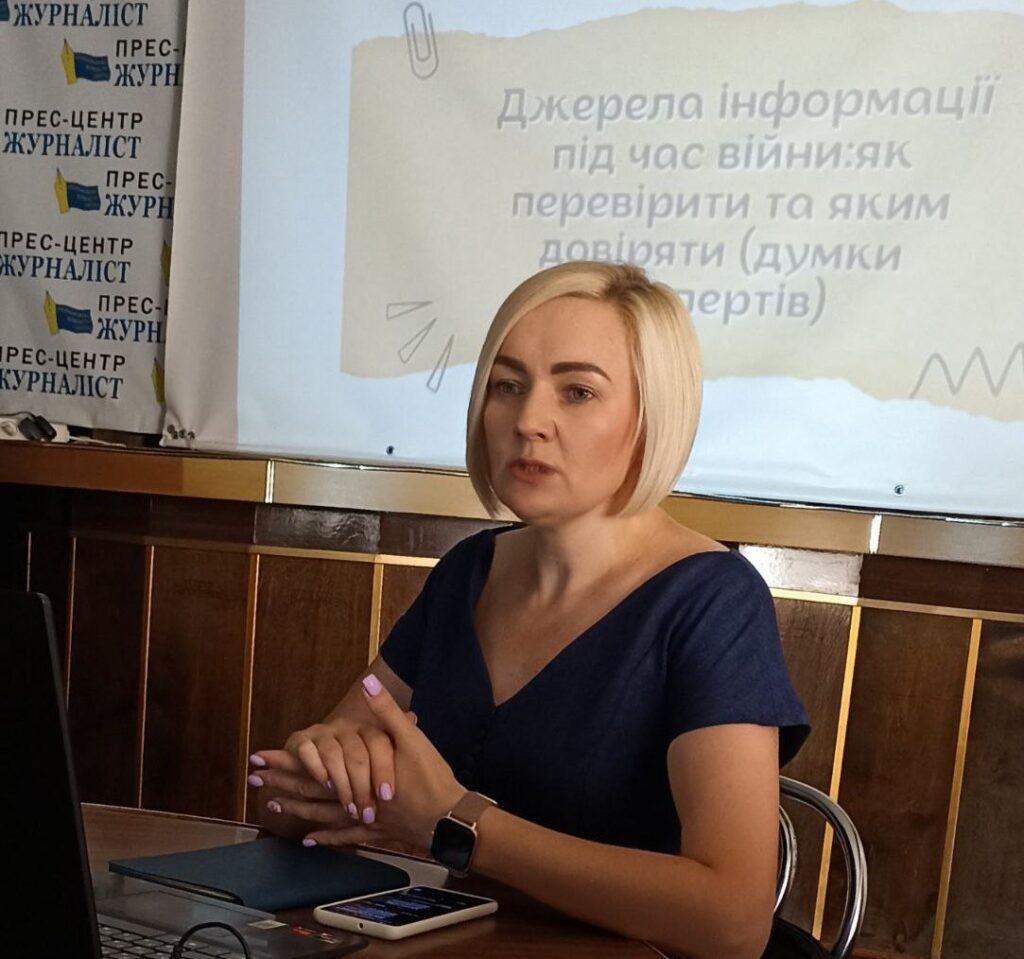
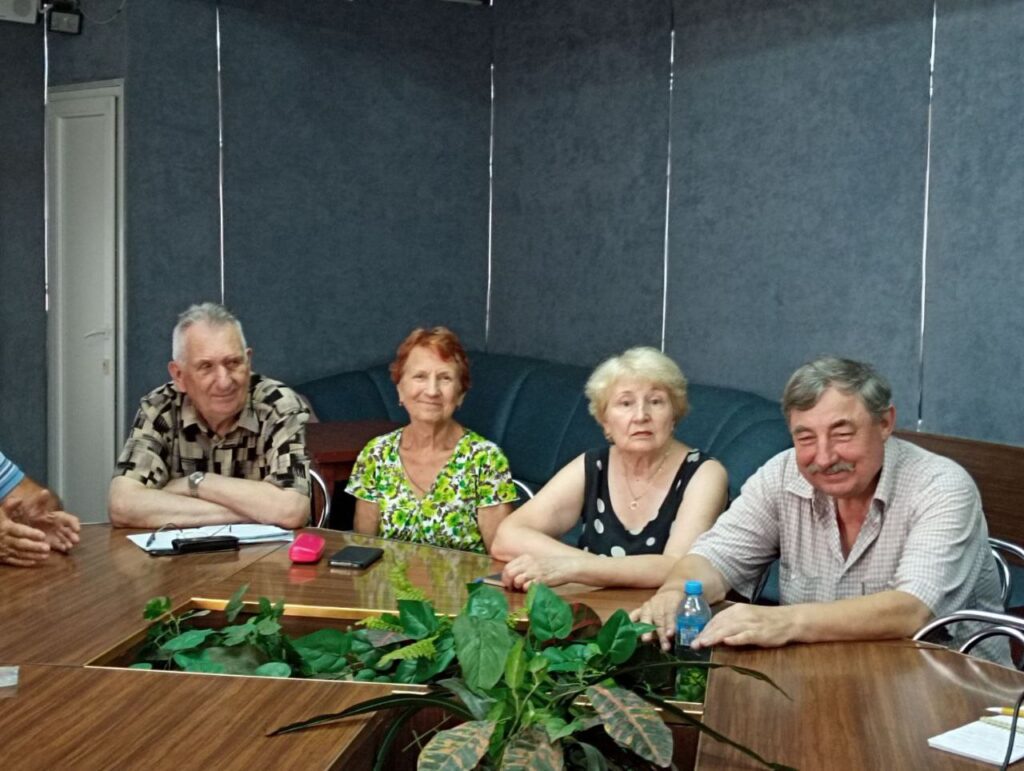
Olena Usmanova advised journalists not to chase a sensation; it is better to take a break to check the news more thoroughly. If there is no confidence in the accuracy and truthfulness of the information, it should not be distributed either in conversations or on social networks, and even more so – in your publications.
“During the training, a lot of attention was paid to the analysis of the information disseminated by the russians. This applies, in particular, to attempts to transfer the responsibility of the russian military for missile attacks on Ukrainian cities to the AFU. The aim of this is to sow panic and hopelessness among our people, to disorient them,” Svitlana Karpenko, the editor of the Trudova Slava newspaper from the front-line settlement of Orikhiv, shared her thoughts after the training. “Right now we see such attempts on the example of missile attacks on the Okhmatdyt Children’s Hospital in Kyiv, and also in our region when the ruscists [russian occupiers] say that they were shooting at military targets, but in fact, they destroy civilian objects, people and, what is most terrible – children. So, when we prepare materials about the war, we check the information very carefully and tell people how to recognize russian fakes and not believe them.”
Call the Zaporizhzhia JSC at 096 277 5352 (Nataliya Kuzmenko and Valentyna Manzhura, the Zaporizhzhia JSC coordinators). The Center’s address is 152 Sobornyi Avenue.
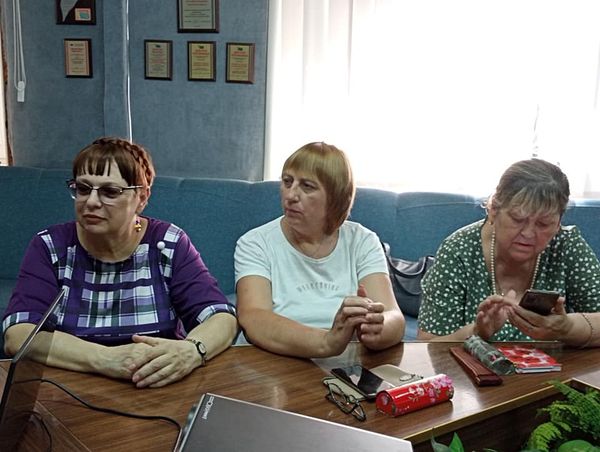
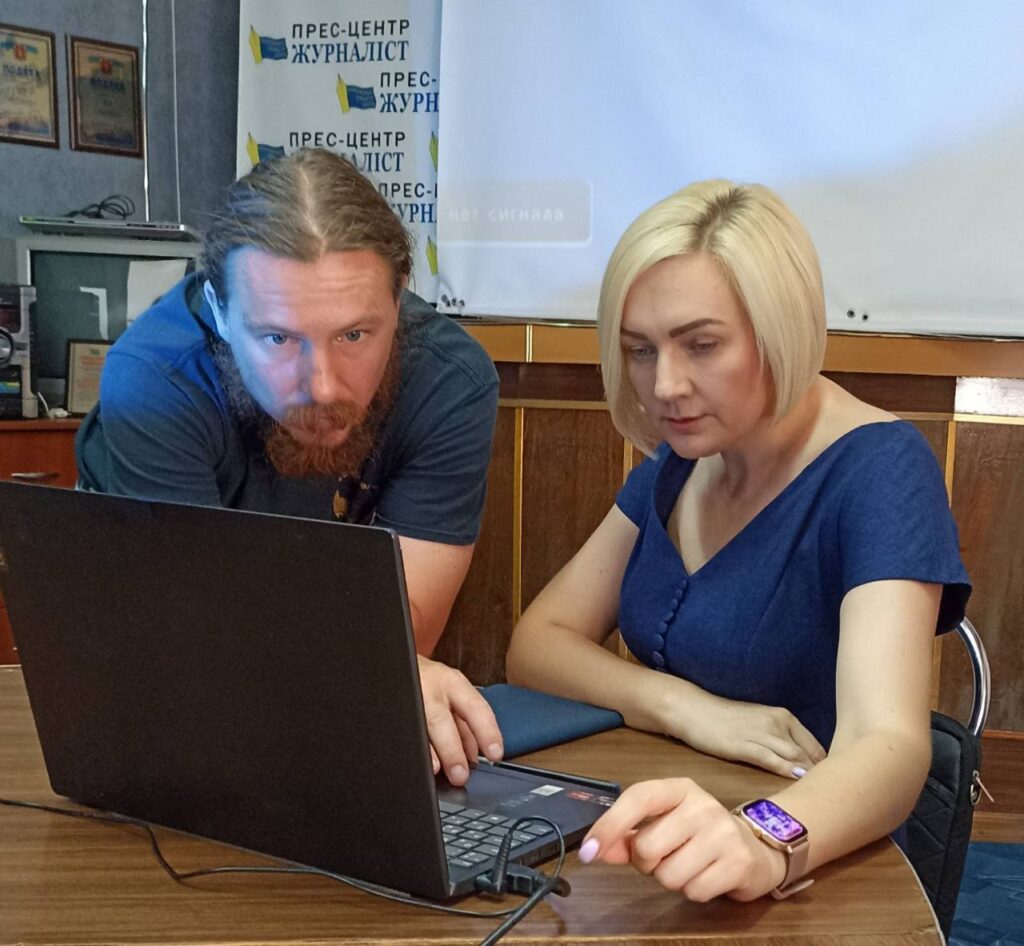
ABOUT JSC
The Journalists’ Solidarity Centers is an initiative of the NUJU implemented with the support of the International and European Federations of Journalists and UNESCO. The initiative is designated to help media representatives working in Ukraine during the war. The Centers operate in Kyiv, Lviv, Ivano-Frankivsk, Chernivtsi, Zaporizhzhia, and Dnipro and provide journalists with organizational, technical, legal, psychological, and other types of assistance.
ABOUT UNESCO
UNESCO is the United Nations Educational, Scientific, and Cultural Organization. It contributes to peace and security by promoting international cooperation in education, sciences, culture, communication, and information. UNESCO promotes knowledge sharing and the free flow of ideas to accelerate mutual understanding. It is the coordinator of the UN Action Plan on the Safety of Journalists and the Issue of Impunity, which aims to create a free and safe environment for journalists and media workers, thus strengthening peace, democracy, and sustainable development worldwide. UNESCO is working closely with its partner organizations in Ukraine to provide support to journalists on the ground.
The designations employed and the presentation of material throughout this digest do not imply the expression of any opinion whatsoever on the part of UNESCO concerning the legal status of any country, territory, city, or area or its authorities or concerning the delimitation of its frontiers or boundaries.
The authors are responsible for the choice and the presentation of the facts contained in this digest and for the opinions expressed therein, which are not necessarily those of UNESCO and do not commit to the organization.
Nina Derkach, Valentyna Bystrova
Photo by the two authors

 THE NATIONAL UNION OF
JOURNALISTS OF UKRAINE
THE NATIONAL UNION OF
JOURNALISTS OF UKRAINE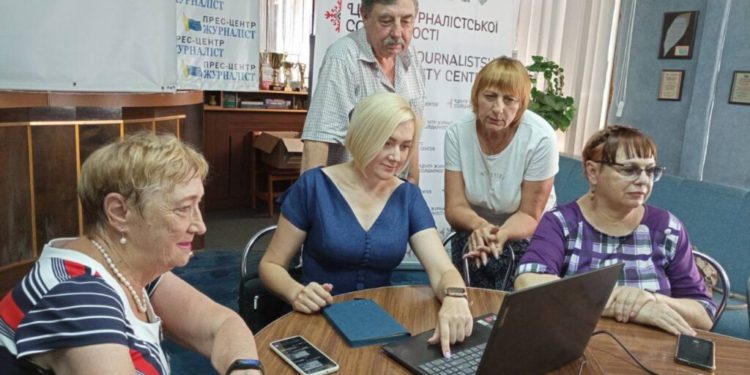

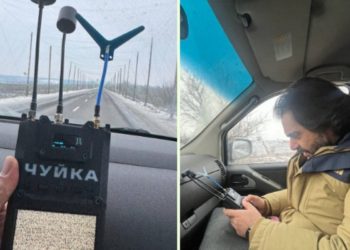
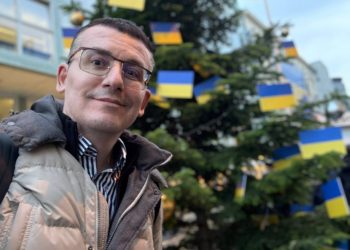













Discussion about this post